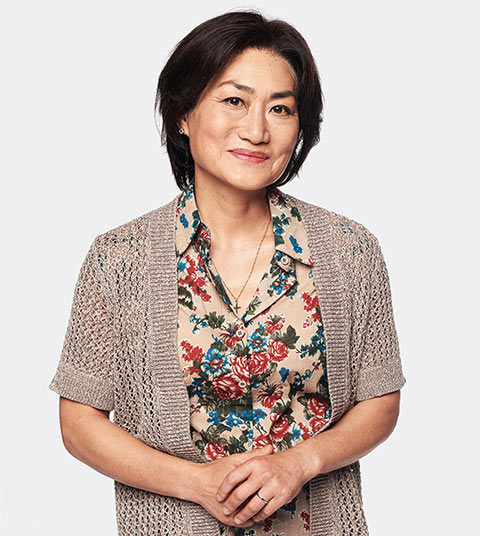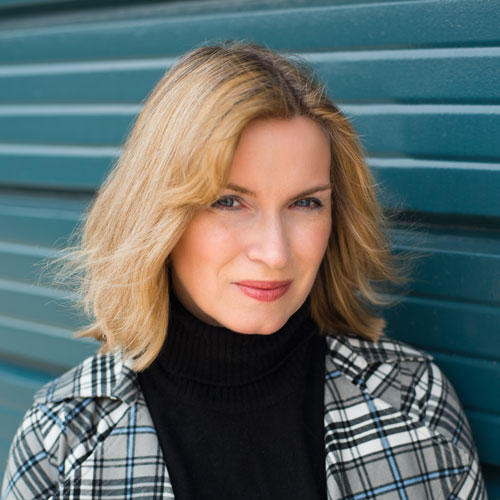On the hit CBC comedy Kim’s Convenience, starting its second season this fall, Jean Yoon (BA 1989 Innis) plays Umma, the warm and funny matriarch of a Korean immigrant family in Toronto. But before that, she spent many years as a playwright, stage actor and tireless advocate for equity in theatre. Here, she shares her journey with Cynthia Macdonald.
I’m sure we attended U of T at the same time. I remember you doing a one-act play on campus, way back in the ’80s.
Yes! I won the St. Mike’s drama prize for a play called The Barber. I wrote and directed it. Don McKellar was in it, and some other people – including a punk cellist, who created a dark soundscape. I built the set myself, too. I’ve never been that interested in directing, though. It’s way more fun to act.
Did you act a lot in those days?
At the time, being Asian was an issue. When I was calling about auditions, I got into the habit of announcing “I’m Asian – if that’s a problem, then let’s not bother.” Because I did walk into a bunch of auditions for student shows of classical pieces, where it was clear from the looks on their faces that there was no way they were going to cast me.
I hope that things have improved since then …
It’s getting better all the time. But in order to act, I had to put in 10 years doing advocacy. Pretty much every artist of colour back then had to. Coming of age in the ’80s, it was not possible for us to simply practise our art. We knew that casting actors of colour in classical pieces was, on its own, a fruitless enterprise. What we needed to do was start telling our own stories . . . leading to the creation of a new repertoire of works, new genres and styles, and a wider audience who find themselves reflected in the works on our stages.
One great new voice out there is Ins Choi, who initially wrote Kim’s Convenience as a Fringe play. And you’ve been playing Umma right from the start. What were those early days like?
I’d never done a play with Korean actors playing all of the Korean characters before. It was mind-blowing because the actors would do some kind of facial tic or vocal gesture that would be so bang-on and so Korean. And everybody would lose it, because we realized that this was part of a shared experience. It wasn’t just Paul [Sun-Hyung Lee] doing his Dad, or me doing my Mom.
How has Umma changed from play to TV show?
I’m grateful that the role has been radically expanded; in the play she’s more resigned than anything. But on TV she’s so active, so hopeful, she’s got her own activities with the church. She’s clearly still got aspirations as a woman.
One thing I love about the show is how everyone in the family gets equal time: not just the glamorous young adults, but their middle-aged parents, too.
There are a number of women in the writers’ room, and one in particular, Anita Kapila, was instrumental in raising the notion that Umma and Appa probably still have sex. I mean, they’re not that old! Just the fact that they have bedroom scenes is great – and I love their little interactions at the end of the day.
Recent Posts
People Worry That AI Will Replace Workers. But It Could Make Some More Productive
These scholars say artificial intelligence could help reduce income inequality
A Sentinel for Global Health
AI is promising a better – and faster – way to monitor the world for emerging medical threats
The Age of Deception
AI is generating a disinformation arms race. The window to stop it may be closing





